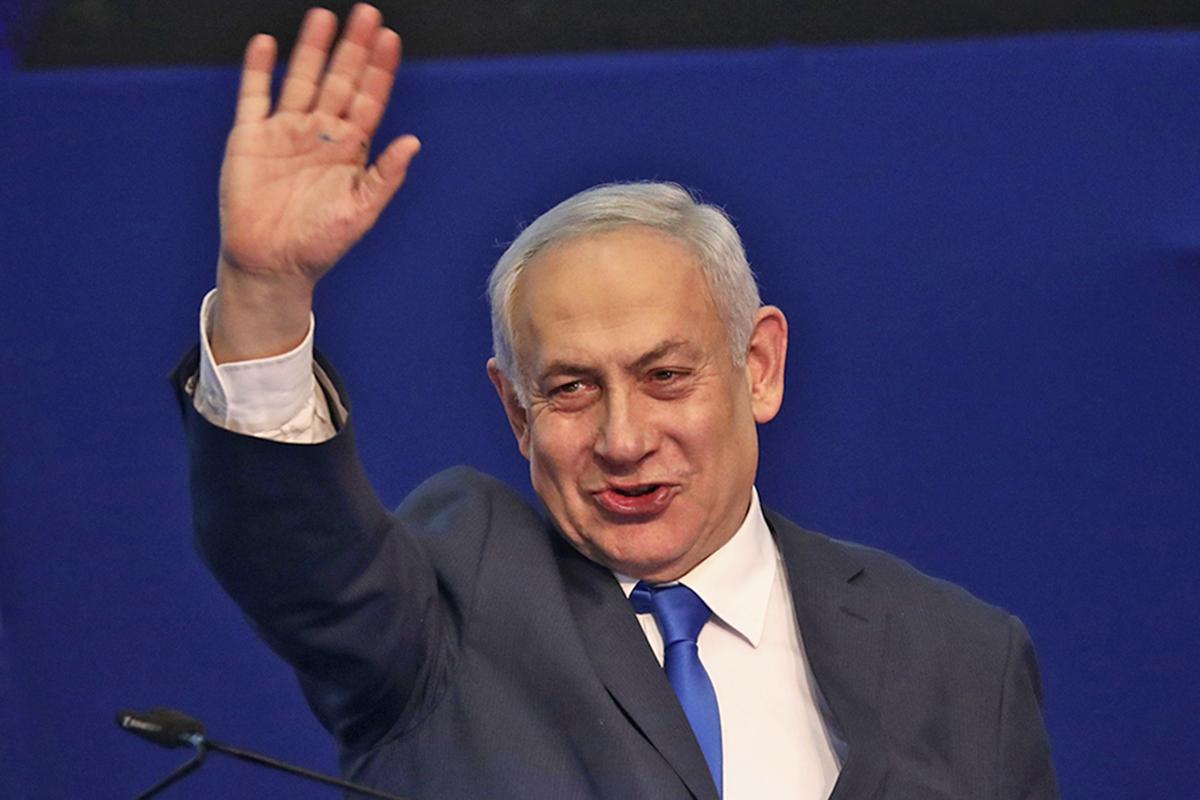Israel’s top court gives go-ahead to Netanyahu’s unity deal with election rival Gantz
Prime minister faces just one more hurdle for his controversial deal: a parliamentary vote on legislation needed to allow the coalition

Your support helps us to tell the story
From reproductive rights to climate change to Big Tech, The Independent is on the ground when the story is developing. Whether it's investigating the financials of Elon Musk's pro-Trump PAC or producing our latest documentary, 'The A Word', which shines a light on the American women fighting for reproductive rights, we know how important it is to parse out the facts from the messaging.
At such a critical moment in US history, we need reporters on the ground. Your donation allows us to keep sending journalists to speak to both sides of the story.
The Independent is trusted by Americans across the entire political spectrum. And unlike many other quality news outlets, we choose not to lock Americans out of our reporting and analysis with paywalls. We believe quality journalism should be available to everyone, paid for by those who can afford it.
Your support makes all the difference.Benjamin Netanyahu can serve as prime minister while under indictment on corruption charges, Israel’s Supreme Court has ruled, paving the way for the premier’s controversial power-sharing deal with his chief elections rival.
In the much-anticipated decision, the court found that Mr Netanyahu’s unity government deal with ex-army chief Benny Gantz does not violate the law.
The 11-judge panel dismissed arguments that staying in power unlawfully shields him in a corruption trial, saying they “did not find any legal reason to prevent Netanyahu from forming a government”.
The statement added the legal conclusion did not diminish “the severity of the pending charges” against Mr Netanyahu ”for violations of moral integrity and the difficulty derived from the tenure of a prime minister accused of criminal activity”.
The late-night decision by Israel’s top court will likely prevent an unprecedented fourth election and break a crippling political deadlock that has seen the country ruled by a caretaker government for over a year following three inconclusive votes.
Mr Netanyahu, already Israel’s longest-serving prime minister, has struggled to sweep a majority of seats during the elections, after being indicted across three trials on graft charges he vehemently denies.
In a joint statement released shortly after the court’s ruling, Mr Netanyahu’s Likud party and Mr Gantz’s Blue and White announced that they had “concluded the establishment of the government”.
They said they hoped to hold a swearing-in ceremony next Wednesday “following the completion of the legislative process this evening”.
The decision comes just 24 hours before a deadline to present their government and avoid yet another election.
The pair face just one more hurdle – a parliamentary vote on legislation needed to allow the coalition to go ahead.
The Knesset held a “socially distant” session overnight Wednesday, with lawmakers in masks scattered through the building, the guest and media gallery.
Mr Netanyahu and his coalition partner Mr Gantz, as well as supporters of the deal, hope to complete the third and final vote needed by the end of Thursday.
According to Israeli media, the first vote showed the Likud and Blue and White sweeping a sizeable majority of the ballots cast.
But in the past, the deal has been met with fierce opposition from Mr Netanyahu’s critics and Mr Gantz’s former elections partners who have accused him of selling out.
Signed on the 20 April the power-sharing agreement outlines a three-year term with Mr Netanyahu acting as prime minister for the first 18 months followed by Mr Gantz.
Critics of the deal accuse the premier of trying to shield himself from prosecution or conviction by staying in power.
Mr Gantz has also come under fire. He formed Blue and White before the April 2019 election with opposition leader Yair Lapid and other former chiefs-of-staff, on the promise that they would never form a government with Mr Netanyahu because of the corruption charges against him.
After three inconclusive votes, no side has been able to cobble together a majority of seats to form a government. Mr Gantz then agreed to join forces with Mr Netanyahu, an action which led to several of his elections partners, including Mr Lapid, quitting.
Over the last few days, the Supreme Court has deliberated about whether an indicted politician can be given authority to form a new government, and whether their power-sharing deal – which includes new legislation – was legal.
The judges ruled that while the coalition deal presents significant legal difficulties, the court would not interfere.
Eliad Shraga, a lawyer representing one of the petitioners against the coalition deal, expressed disappointment but said he would respect the decision. "We will continue to raise the flag of morality," he told Channel 12 news.
Join our commenting forum
Join thought-provoking conversations, follow other Independent readers and see their replies
Comments